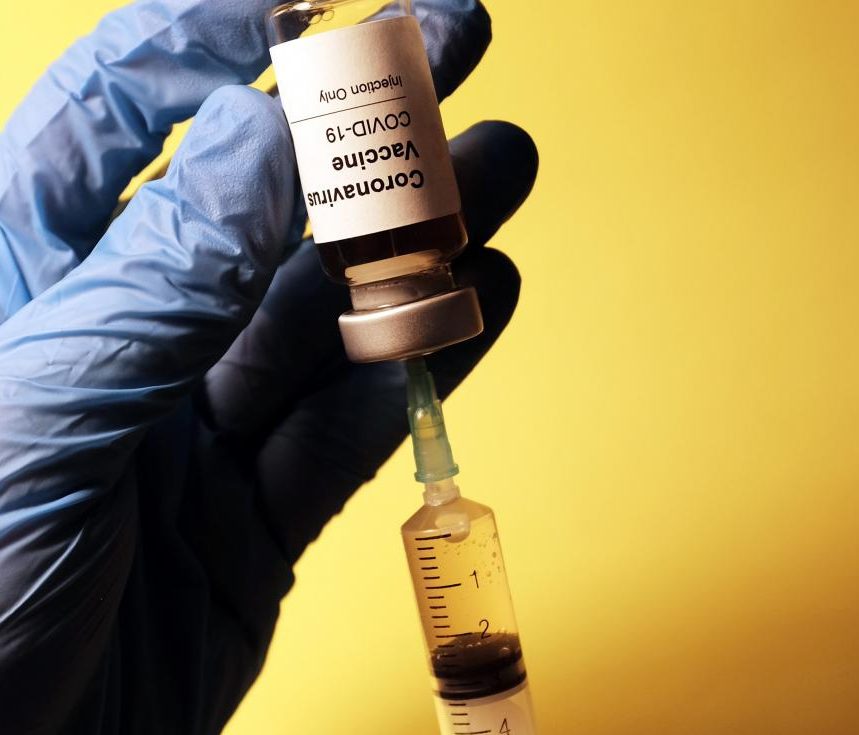Such Big Things
Healthcare Students Reflect on the Pandemic and Their Role in Solving It.
April 5, 2021
While Millikin nursing and pre-med students have faced intense challenges, for many of them, the COVID-19 pandemic has reaffirmed that they’re exactly where they need to be.
“We’ve had professors and classmates say it’s kind of like you’re taking part of a big time in history, you know?” senior nursing student Anastasia Condos said. “Some of the clinics we’re working are first-shot clinics. We’re actively going into the community and helping to stop the spread, so it’s a once-in-a-lifetime thing. Even though COVID sucks, it’s cool that we’re able to do such big things.”
Condos has been giving vaccines as part of her community health clinical, and she appreciates that her class has been able to vaccinate rural areas and combat health disparities in underserved communities. She also recently resumed her tech job at St. Mary’s, which has placed her on the frontlines.
“It’s kind of crazy to see because in the pandemic, I was at home with my family quarantining. I saw on the news all the stuff going on,” Condos said. “And then now on the flip side, working, I’m like, oh my gosh, this is the stuff they talked about on the news. I’m the frontline workers I’ve been hearing about every night.”
Biology pre-med student David Kabalisa had a similar realization about his role as a frontline worker in the pandemic. In addition to his classes, he works at the SHIELD test site on campus. According to Kabalisa, the pandemic might “feel like the end of the earth, [but] it didn’t change what I expected from my field.”
“It’s kind of spotlighted the whole thing of health workers as heroes, you know, which is kind of ironic,” Kabalisa said. “You’re supposed to be heroes, but now it’s even more appreciated, I think.”
While students like Condos and Kabalisa have taken an active role in the pandemic, younger students are just starting to learn about healthcare and how their fields are changing. These students, especially freshmen, faced a choice after the pandemic hit: continue their plans to study healthcare, or choose a different path?
“It has made me think twice about, like, what are the risks necessary for doing the job?” freshman Diana Hernandez said.
Hernandez never changed her plans to major in nursing, but she does worry about how COVID-19 is affecting nurses’ mental health. Hernandez, who has always had an appreciation for nurses after seeing how they took care of her siblings, views this toll on nurses’ health as yet another reason why they deserve more gratitude.
“It shouldn’t have come to that point where, you know, a pandemic needed to happen for them to be appreciated and rewarded for all of their efforts,” Hernandez said. “But I definitely think that it’s eye-opening. It’s time that people appreciate the nurses and what they do…They go out there every single day and they just continue to work and provide for others and [have] their own personal lives.”
Not only has the attitude toward healthcare workers changed, but so have healthcare practices. Millikin’s School of Nursing has had to adjust their techniques so that students can safely get the experience that they need. Professor Brenna Elston notes that some of the changes—such as online testing, flipped classrooms, and virtual clinicals when necessary—will likely become the norm.
“I think the best thing that has come from the pandemic has been us figuring out what we can do virtually and helping us to get creative with the experiences so that students are still getting that experience, just in a different way,” Elston said.
Elston believes that the pandemic has “lit that fire” and motivated her students. But she says that students and professors don’t really talk about the pandemic in class—there’s nothing left to say.
“I think by now it’s just kind of become the norm…We’re just adapting to it,” Elston said. She misses seeing patients’ faces behind their masks.
Beyond the classroom, Condos has also noticed that the need for nurses is shifting. As she prepares to graduate, she’s been applying for jobs, but her plans are on hold. Condos originally wanted to become a pediatric nurse, but hospitals aren’t looking for specialty nurses right now; they need ICU nurses to help with COVID-19 patients.
Lately, Condos has been working in the St. Mary’s ICU and taking care of COVID-19 patients who are on ventilators. While she likes this work, it does take an emotional toll, especially when she hears the debates about mask-wearing and the validity of the vaccines.
“It’s very disheartening when you’re on the other side and you actually see these people who have been affected by COVID,” Condos said. “And I’ve had family members who passed away from COVID or have gotten it. I know firsthand, in multiple ways, the realities of the situation.”
This firsthand experience has been difficult, and it has led to healthcare workers trying to persuade people to get vaccinated and take precautions. Kabalisa said that many of his friends are hesitant because of how quickly the vaccine was developed, but he encourages them to trust science and the modern technology that made the vaccine’s development possible.
While healthcare has changed, the commitment and passion for helping other people—a defining characteristic for all healthcare workers—is still there. If anything, most students agree that the pandemic has reminded them why they’re studying in the first place.
“I think [the pandemic] gave me another aspect of how health is a really important sector in our life,” Kabalisa said. “So I don’t feel like I’ve changed anything or made other plans. The dream is still the same: to become a doctor.”
